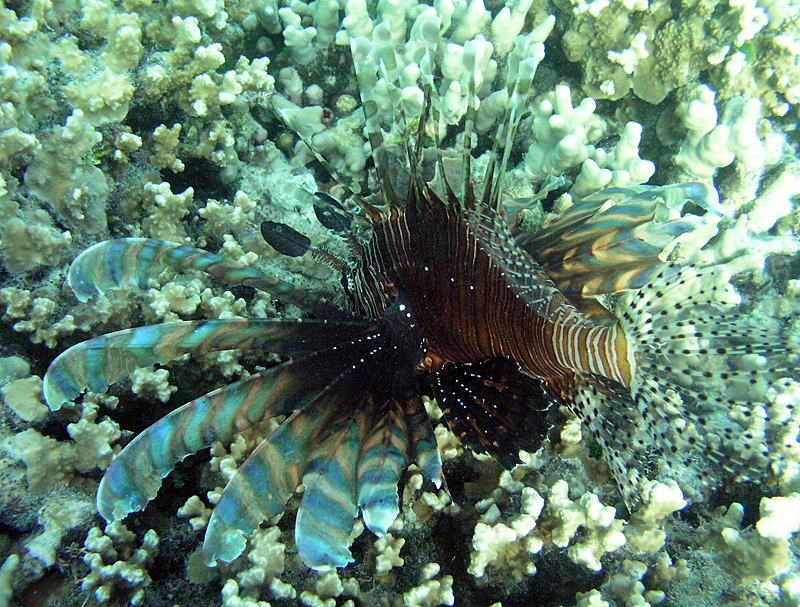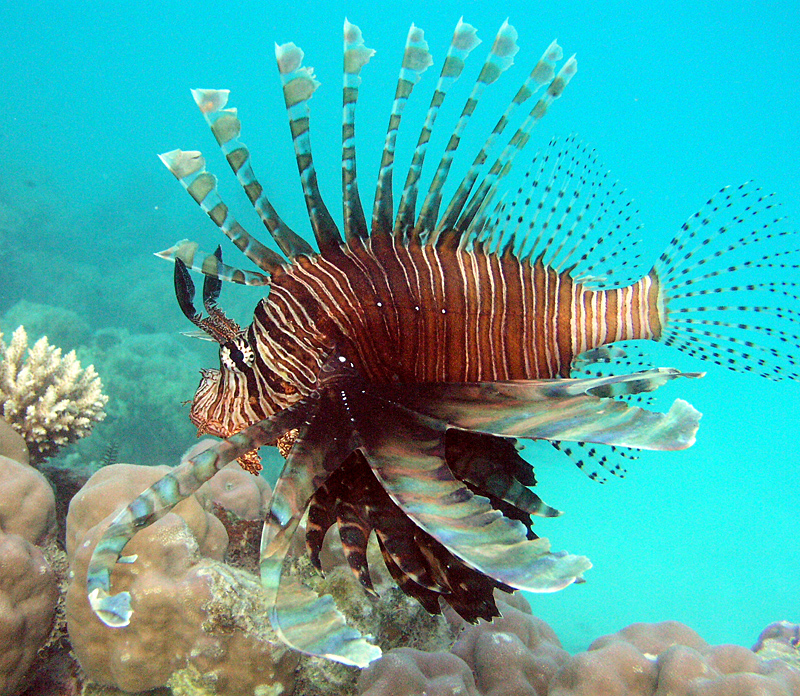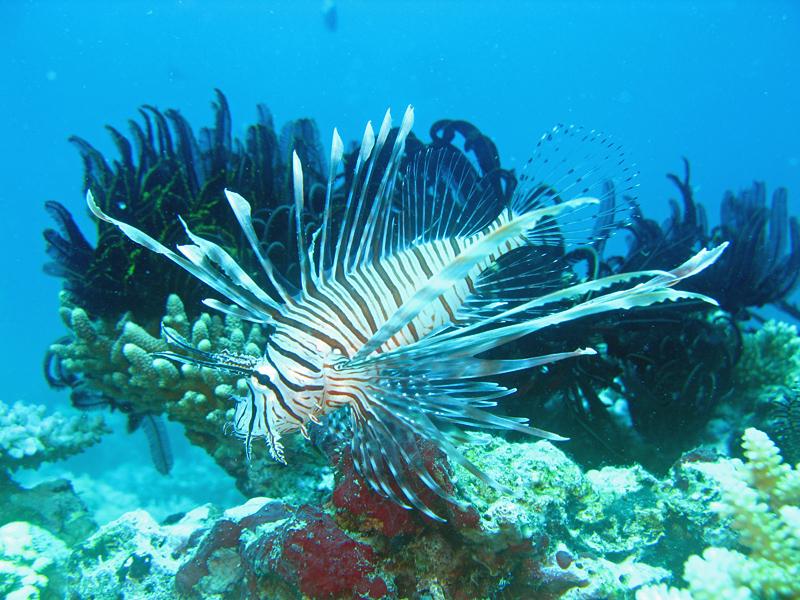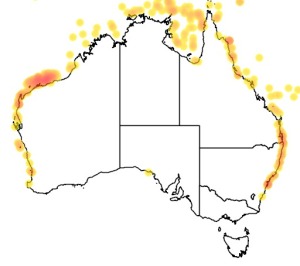
©Andy Lewis: A Common Lionfish using its pectoral fins to hunt for small fishes in the coral crevices
Colours
Distinguishing features
A medium sized fish maroon and white striped fish with extremely long rays on the dorsal, ventral, and pelvic fins. Usually seen resting in caves during the day, although they may come out to hunt in the late afternoon and early morning.
Size
- Up to 40 cm (Standard length)
Depth range
- Depth range data is not yet available.
Synonyms
Distribution
Distribution and habitat preferences
Drop-offs and walls with abundant caves and plentiful prey fishes, but can also be seen in shallow lagoonal areas.
Can be found in most locations around the island, although not common anywhere.
Behaviour
The Common Lionfish is a predator on small fishes, using its large fin rays to herd small fish toward its mouth. They are usually seen resting in caves or under ledges during the daytime, so care should be taken when approaching these places. This species has recently become established along the east coast of the USA from aquarium escapees.
Web resources
Danger
- unspecified - The dorsal spines are poisonous, so care should be taken if approaching or handling this fish. First Aid - click here
References
- Grutter, A.S. (1997). Effect of the removal of cleaner fish on the abundance and species composition of reef fish, Oecologia, 111: 137-143. LIRS catalog number 504.
- Lonnstedt, O.M. (2014). Predator-prey interactions and the importance of sensory cues in a changing world. PhD thesis, James Cook University. LIRS catalog number 1852.
- Lonnstedt, O.M. and M.I. McCormick (2013). Ultimate predators: lionfish have evolved to circumvent prey risk assessment abilities. PLoS ONE doi:10.1371/journal.pone.0075781, 8(10): e75781. LIRS catalog number 1711.
- View all references






